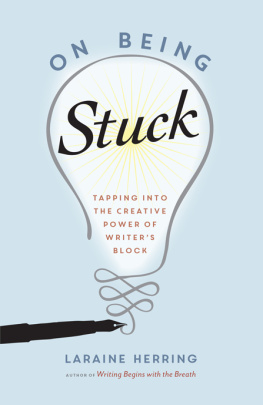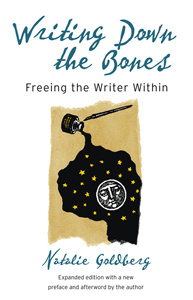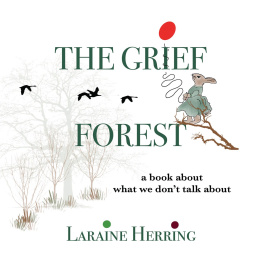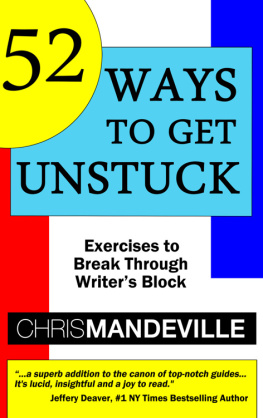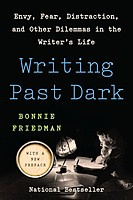ABOUT THE BOOK
Writers block. If you are a writer, you know it can be a haunting, terrifying forcea wolf at the door, a vast conspiracy, something that keeps you up at night, spinning your wheels, going nowhere. But what if weve been thinking about writers block all wrong? What if, by paying attention to its qualities and inquiring into its hidden gifts, we can release that power? On Being Stuck is an empowering guide to working with your blocks and finding the friend within the beast. Using deep inquiry, writing prompts, body and breath exercises, and a range of interdisciplinary approaches, On Being Stuck will help you uncover the gifts hidden within your creative blocks, while also deepening your relationship to your work and reawakening your creative process.
Sign up to receive news and special offers from Shambhala Publications.

Or visit us online to sign up at shambhala.com/eshambhala.
On Being Stuck
Tapping Into the Creative Power of Writers Block
Laraine Herring

Shambhala
Boulder 2016
Shambhala Publications, Inc.
4720 Walnut Street
Boulder, Colorado 80301
www.shambhala.com
Cover design by Jim Zaccaria
2016 by Laraine Herring
All rights reserved. No part of this book may be reproduced in any form or by any means, electronic or mechanical, including photocopying, recording, or by any information storage and retrieval system, without permission in writing from the publisher.
Library of Congress Cataloging-in-Publication Data
Names: Herring, Laraine, 1968 author.
Title: On being stuck: tapping into the creative power of writers block /
Laraine Herring.
Description: First edition. | Boulder: Shambhala, [2016]
Identifiers: LCCN 2015037765 | eISBN 978-0-8348-4015-7 | ISBN 9781611802900 (paperback)
Subjects: LCSH: Writers block. | AuthorshipPsychological aspects. I BISAC:
LANGUAGE ARTS & DISCIPLINES / Composition & Creative Writing. I SELF-HELP / Creativity.
Classification: LCC PN171.W74 H47 2016 | DDC 808.02019dc23
LC record available at http://lccn.loc.gov/2015037765
for Keezel
Instead of trying to force myself into doing what I imagined I ought to be doing, I began to enquire into what I was doing.
Marion Milner
Contents
Just after New Years Day 2014, I find myself stuck in the polar vortex that is engulfing most of the United States. Unprecedented and deadly cold temperatures and winter storms blanket the country. Air travel as we know it ceases. I am in the Berkshires in Lenox, Massachusetts, twenty-two hundred miles away from my high desert home, to teach a writing workshop at the Kripalu Center for Yoga & Health. Although they are well accustomed to snow and cold, these hardy New Englanders have posted orange warning signs on the doors and bulletin boards:
DANGER. EXTREME COLD.
DO NOT WALK TO YOUR CAR.
CALL US FOR A RIDE.
My home in Prescott, Arizona, is 120 miles northwest of the megalopolis of Phoenix. We sit at a little over five thousand feet. We like to think we have a winterwe call ourselves Arizonas Christmas City, and we even truck in ice for a skating rink one weekend in Decemberbut our winters are really more of the snow globe kind, followed quickly by warm sun and short sleeves. When the temperatures drop below 55F, we all bring out our new parkas and faux-fur-lined winter boots. Brrr! Its cold today, we say, wrapping our light cotton scarves around our necks, grabbing our keys with our fashionable fingerless gloved hands, and walking out into the blinding winter sun. We dont think of our breath freezing in our noses. We dont worry about the pipes in our houses. If the Berkshire folk, who wear serious, dark-colored, actual parkas and snow boots that require tools to remove from woolen-socked feet, are worried about the coldwell, goodnessit must be some kind of cold.
In my room, I compulsively check flight statuses. Cancelled. Cancelled. Cancelled. Im still forty-eight hours from my flight home. Its too early for a specific update for my Albany-Chicago-Phoenix route. The weather will clear soon. It always does. For kicks, I check my transfer airport, Chicago Midway. Status: red. Delays severe. No change. No one arriving. No one leaving. Not tonight. Maybe not ever. I imagine the families lined up along the narrow corridors at Midway ready to strangle the automated voice: Welcome to Chicago Midway Airport. Smoking is not allowed in any of the buildings.... I see the line snaking into the bathroom. A fight over the last chicken nugget in all the kingdom. Luggage piled seven feet high. The whole country is stuck in the middle of their plans.
Im not too concerned. Im indoors in a beautiful retreat facility that was formerly a Jesuit monastery. We have heated floors, running water, yoga classes, a hot tub, a world-class spa, and three scrumptious meals a day. I love teaching this workshop, and I really do love coming to Massachusetts in the winter. The snow is a novelty for melike trying on sexy stilettos or snorkeling. Plus, I dont have to do any of the winter work. Kripalus facilities team doesnt sleep until the sidewalks are shoveled and salted, the cars dug out, and the snow shaken from the low-hanging branches. I get to watch the winter from the comfort of my room. I am only outside for the twenty feet it takes to go from the car to the building when I arrive and when I leave. But now, for the second time in my desert-dwelling adult life, winter weather is keeping me from doing what I want to do when I want to do it. I push the polar vortex from my mind and meet my group for our third session.
This years writing retreat holds twenty-five hearts and souls. Were in a newly renovated room on the ground floor calledironically, given the weatherthe Sunrise Room, sitting on black Backjacks, hunched over notebooks, socked feet wrapped warmly in yoga blankets. Im watching themthis beautiful group of writing warriorsinhale deeply and dive into the activity Ive presented. This is an evening program on our second day. They are getting tired. Writing is indeed the hard work theyve heard it is. It doesnt help that this is the exercise where I ask them to name all the fears they have around their writingtheir actual work, their process, their writing futures.
My legs are crossed, ankles resting on a cushion. My stuffed green monkey, Keezel, who attends all my live events to serve as a mini-Hanuman and a source of play and lightness when things get too heavy, sits on his own black cushion, holding the obligatory banana from the mornings breakfast, also watching. His stitched-on smile never wavers.
I engage in a lot of group observation when I teach. One of my biggest responsibilities is to hold the space for the group so the members can travel where their writing needs to take them. If I tune out or do my own writing, Ill lose them. I wont notice the slip of a warm tear from the lady in the corner or the unconscious clenching and unclenching of fists from the man in Padmasana (Full Lotus Pose). Its my job to notice because what I see shows me what to do next. I cant miss the signs or, worse, predetermine what the signs are supposed to be. Transformational teaching happens by remaining in the direct experience of the group. Transformational writing happens by remaining with the direct experience of the page.
The wind howls. Its evening, so the floor-to-ceiling windows are black. Anything can be out there lurking in the shadows. In the early dawn, the mountains will be laced with gray, and icicles five stories tall will suspend from the roof. Snowplows will make their endless loops through the parking lot, and we will hear the slapping of salt on the walkways. But now, all we see is pitch. All we hear is ice hitting the triple-paned glass.
Next page
